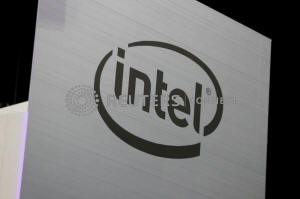Intel says its 5G modem chips will not appear in phones
until 2020
 Send a link to a friend
Send a link to a friend
 [February 23, 2019]
By Stephen Nellis [February 23, 2019]
By Stephen Nellis
(Reuters) - Intel Corp executives said on
Friday its 5G modem chips will not appear in mobile phones until 2020,
raising the possibility its biggest customer, Apple Inc, will be more
than a year behind rivals in delivering a device that uses the faster
networks.
Sandra Rivera, who oversees Intel's networking chip business, said at a
media event in Palo Alto, California, that sample 5G modem chips will
ship to customers this year but that Intel does not expect consumer
"products in the market" until 2020.
Intel has said its 5G modem chip will be available later this year, but
it never indicated when it believed products will arrive for consumers.
Rivera said non-consumer 5G products, such as networking gear, will
appear later this year.
It was unclear whether Intel's timing on modem chips means that Apple
will not have an iPhone with 5G capabilities in 2019. Bloomberg
previously reported that Apple would not have a 5G iPhone ready until
2020.

Apple executives have held talks with Samsung Electronics Co Ltd and
MediaTek Inc over 5G modem chips for iPhones to be released this year,
but the outcome of those talks is unknown.
Reuters reported on Feb. 7 that Apple earlier this year moved its modem
engineering efforts into the same division that makes its proprietary
processor chips.
Apple did not immediately respond to a request for comment.
[to top of second column] |

The Intel logo is shown at E3, the world's largest video game
industry convention in Los Angeles, California, U.S. June 12, 2018.
REUTERS/Mike Blake/File Photo

While Apple remains Intel's only major modem chip customer now, Intel Chief
Executive Bob Swan said the Santa Clara, California-based chipmaker plans to
pursue other lines of business, such as selling modems to carmakers.
He also said that modems could appear in a range of other devices, such as
network gear, alongside Intel's computing chips as 5G networks proliferate. But
Intel executives declined to comment on whether Intel would combine its modem
and processors into a single chip the way that rivals such as San Diego-based
Qualcomm Inc have done.
Swan said Intel did not plan to generate patent licensing revenue from its 5G
technology like its Southern California competitor does.
"Our model relative to other California-based players is just completely
different," Swan said. "Ours is not a licensing based model.
"Royalty streams that are charged against the cost of the entire device, that's
a model that as you know has caused quite a bit of friction in the market," Swan
continued, alluding to Qualcomm's legal battles with Apple and other phone
makers over the San Diego firm's patent practices. "Friction for others is
opportunity for us."
(The story is refiled to add missing "s" from "talks" in paragraph five.)
(Reporting by Stephen Nellis; Editing by Tom Brown)
[© 2019 Thomson Reuters. All rights
reserved.] Copyright 2019 Reuters. All rights reserved. This material may not be published,
broadcast, rewritten or redistributed.
Thompson Reuters is solely responsible for this content. |